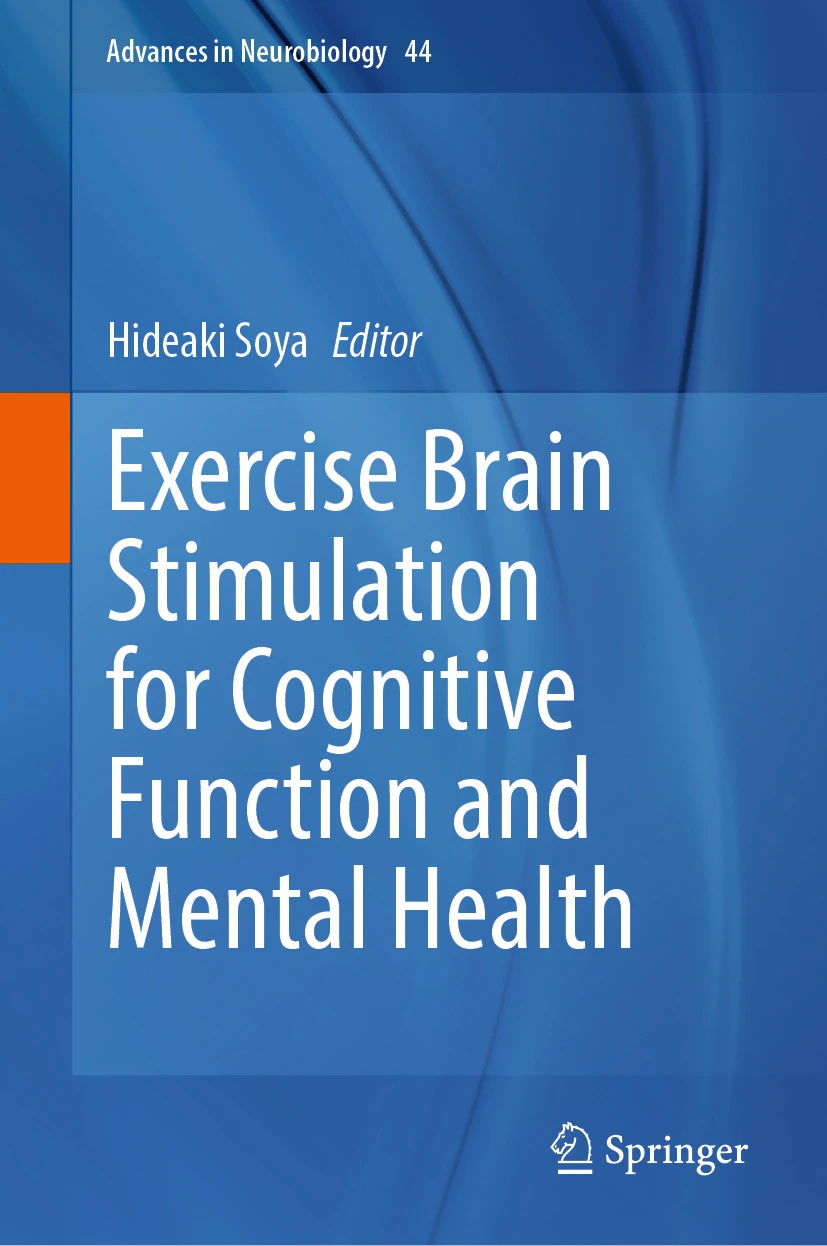【Book Published】Research Findings Published in International Academic Book Edited by Professor Emeritus Soya of University of Tsukuba
The international academic book '**Exercise Brain Stimulation for Cognitive Function and Mental Health**' was published by Springer Nature.

Book Publication Announcement
The international academic book 'Exercise Brain Stimulation for Cognitive Function and Mental Health' was published by Springer Nature in September 2025. In this book, Lecturer Ochi contributed a chapter titled 'Application of Minimum Exercise Model to the Hypoxic Environment'.
Book Information
- Title: Exercise Brain Stimulation for Cognitive Function and Mental Health
- Editor: Hideaki Soya, Professor Emeritus (University of Tsukuba)
- Publisher: Springer Singapore
- ISBN: 978-981-95-0066-6
- Publication Date: September 2025
- Series: Advances in Neurobiology (Volume 44)
- URL: https://link.springer.com/book/10.1007/978-981-95-0066-6
About This Book
This academic book comprehensively summarizes the latest scientific knowledge about the beneficial effects of aerobic exercise on brain health. Focusing on the prefrontal cortex and hippocampus, which play important roles in cognitive and memory functions, it includes a wide range of research findings from animal experiments to human studies.
The book systematically explains how exercise affects brain structure, function, and neurochemical pathways from basic to applied research, and discusses in detail the potential of exercise therapy for neuropsychiatric disorders such as Alzheimer's disease and depression.
About the Contributed Chapter
The chapter 'Application of Minimum Exercise Model to the Hypoxic Environment' written by Ochi explains effective exercise protocols under hypoxic conditions based on the latest research findings.
Significance of This Book
This book is expected to serve as a valuable reference for researchers, clinicians, educators, and students in exercise science, neuroscience, physiology, and psychiatry. It explores the potential of physical activity as a non-pharmacological tool to support cognitive function and mental health by reconceptualizing exercise not merely as a means of health maintenance, but as a dynamic regulator of brain function.